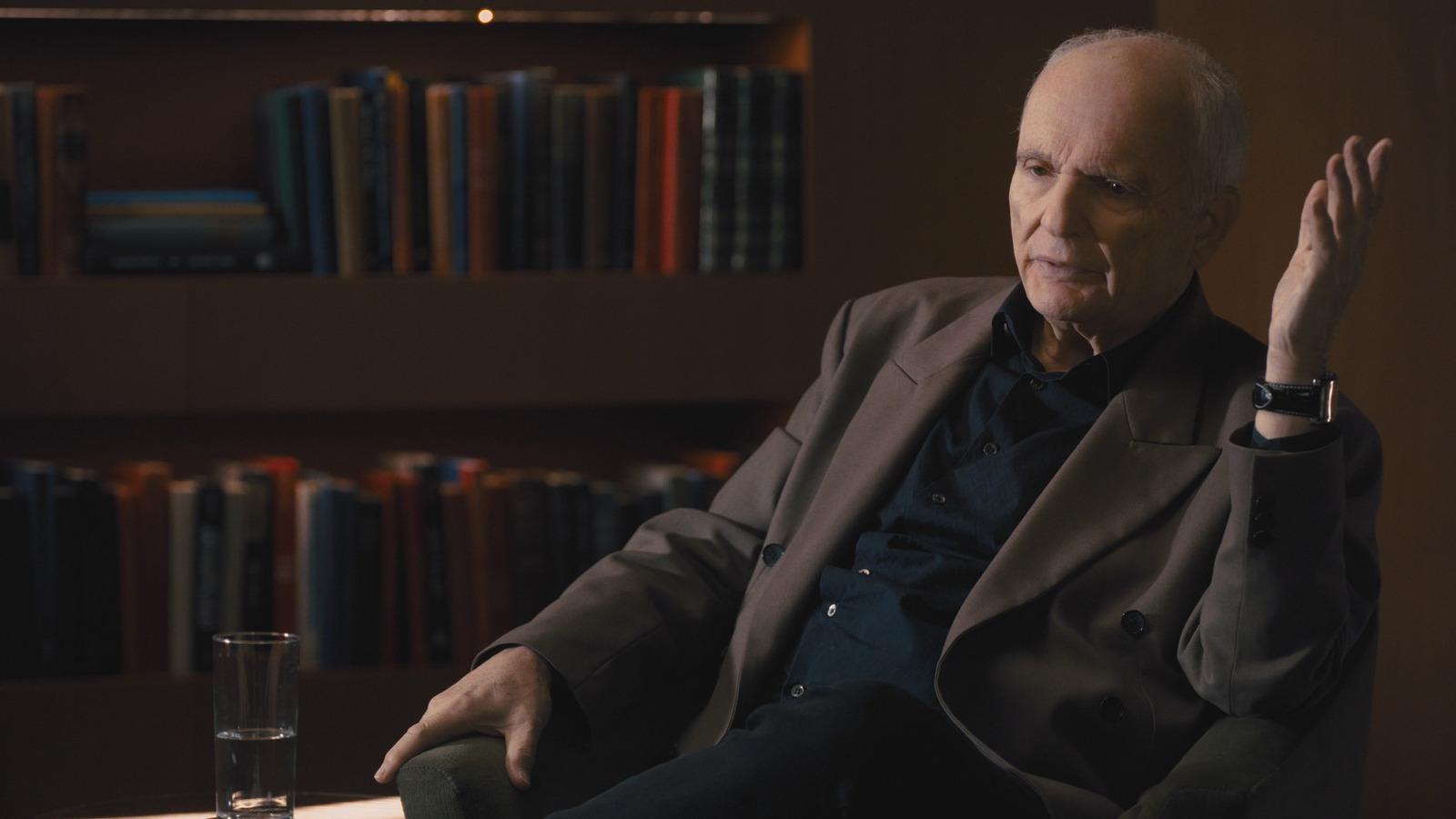This past weekend, HBO released a two-part documentary called “Wise Guy: David Chase and The Sopranos” that delves into the life of the creator of one of the most pivotal shows in television history and also covers the creation and production of the acclaimed series. By director Alex Gibney’s own admission, it’s not a definitive deep dive into every aspect of the sprawling mafia/family drama (there are books and podcasts that do that). But as someone who just watched “The Sopranos” for the first time a couple of years ago and never explored any behind the scenes materials or sought out any oral histories, this doc provided a bunch of cool revelations and fascinating, dramatic moments I’d never seen or heard about before.
It also makes some interesting decisions about how to present information visually, the most obvious being that the primary series of lengthy interviews between Gibney and David Chase take place in a recreation of the office of Dr. Jennifer Melfi, Tony Soprano’s therapist on the show, putting Chase in the metaphorical hot seat and essentially asking him to offer up information about his past like he might in a therapy session.
But that wasn’t the only cool visual choice. I spoke with Gibney over Zoom for the /Film Daily podcast, and he told me about a scene that comes about 10 minutes into the first episode:
“We definitely had an aesthetic for how to shoot David in the Melfi office reconstruction, but everything else kind of evolved, including the idea — we thought, ‘Wouldn’t it be fun to take David back to New Jersey? And then I thought, ‘Wouldn’t it be fun to put David in the seat of the car along with Jim [Gandolfini] for that title sequence?'”
Alex Gibney’s team recreated The Sopranos opening credits sequence with never-before-seen footage
After a flurry of information about Chase’s personal history, the show breaks into a recreation of “The Sopranos” opening credits, in which James Gandolfini’s Tony Soprano drives from New York to his home in New Jersey with “Woke Up This Morning” by the band Alabama 3 playing underneath and the camera presenting verite-style snatches of the views outside of his car windows along the way. Only in this documentary’s version, those shots of Gandolfini driving are intercut with new footage of David Chase riding in the passenger seat.
“That took some doing,” Gibney told me. “We were able to go into the archive at HBO and find some of the outs, so we were able to put in some angles of Jim that had never been in the original title sequence and then also work very hard to shoot David in a way that would intercut with the stuff that was from the show.”
The result is a captivating visual in which a creator is traveling alongside his greatest creation, but it becomes even more psychologically compelling in retrospect as the doc reveals just how closely David Chase relates to Tony Soprano in his real life. There are so many ways to read into this visual: Chase essentially riding with himself, Chase being propelled forward by a character who would define his own legacy as a storyteller, Chase strapping himself to the phenomenon of “The Sopranos” when all he initially ever wanted to do was direct movies … like the show it chronicles, this is rich imagery with a multitude of interpretations.
I spoke about “Wise Guy” with /Film’s Chris Evangelista on today’s episode of the /Film Daily podcast, which also includes my full interview with Alex Gibney. Check it out below:
You can subscribe to /Film Daily on Apple Podcasts, Overcast, Spotify, or wherever you get your podcasts, and send your feedback, questions, comments, concerns, and mailbag topics to us at bpearson@slashfilm.com. Please leave your name and general geographic location in case we mention your e-mail on the air.

